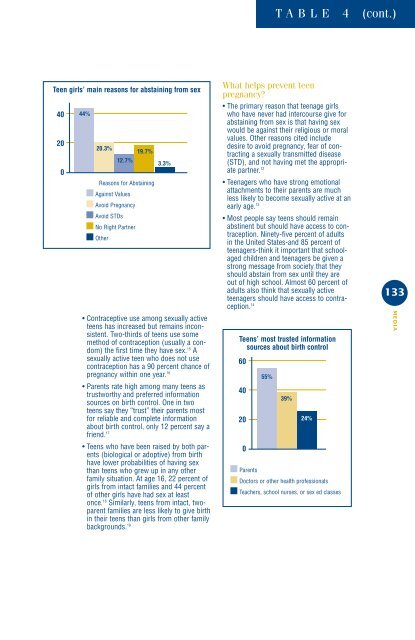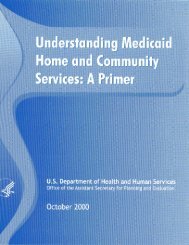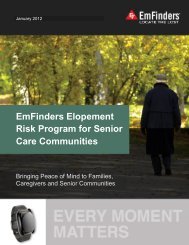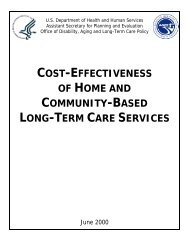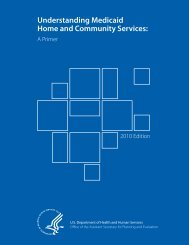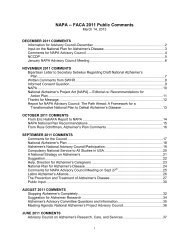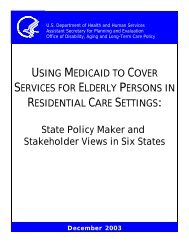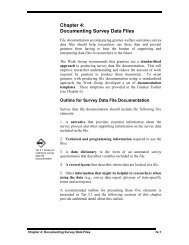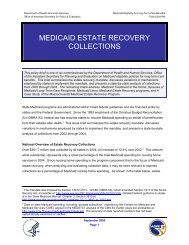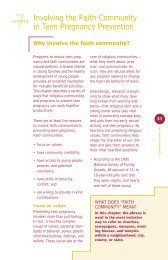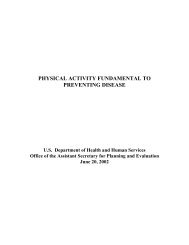Working with the Media to Promote Teen Pregnancy Prevention
Working with the Media to Promote Teen Pregnancy Prevention
Working with the Media to Promote Teen Pregnancy Prevention
You also want an ePaper? Increase the reach of your titles
YUMPU automatically turns print PDFs into web optimized ePapers that Google loves.
TABLE 4 (cont.)<strong>Teen</strong> girls’ main reasons for abstaining from sex4020044%20.3%19.7%12.7%3.3%Reasons for Abstaining■ Against Values■ Avoid <strong>Pregnancy</strong>■ Avoid STDs■ No Right Partner■ O<strong>the</strong>r• Contraceptive use among sexually activeteens has increased but remains inconsistent.Two-thirds of teens use somemethod of contraception (usually a condom)<strong>the</strong> first time <strong>the</strong>y have sex. 15 Asexually active teen who does not usecontraception has a 90 percent chance ofpregnancy <strong>with</strong>in one year. 16• Parents rate high among many teens astrustworthy and preferred informationsources on birth control. One in twoteens say <strong>the</strong>y “trust” <strong>the</strong>ir parents mostfor reliable and complete informationabout birth control, only 12 percent say afriend. 17• <strong>Teen</strong>s who have been raised by both parents(biological or adoptive) from birthhave lower probabilities of having sexthan teens who grew up in any o<strong>the</strong>rfamily situation. At age 16, 22 percent ofgirls from intact families and 44 percen<strong>to</strong>f o<strong>the</strong>r girls have had sex at leas<strong>to</strong>nce. 18 Similarly, teens from intact, twoparentfamilies are less likely <strong>to</strong> give birthin <strong>the</strong>ir teens than girls from o<strong>the</strong>r familybackgrounds. 19What helps prevent teenpregnancy?• The primary reason that teenage girlswho have never had intercourse give forabstaining from sex is that having sexwould be against <strong>the</strong>ir religious or moralvalues. O<strong>the</strong>r reasons cited includedesire <strong>to</strong> avoid pregnancy, fear of contractinga sexually transmitted disease(STD), and not having met <strong>the</strong> appropriatepartner. 12• <strong>Teen</strong>agers who have strong emotionalattachments <strong>to</strong> <strong>the</strong>ir parents are muchless likely <strong>to</strong> become sexually active at anearly age. 13• Most people say teens should remainabstinent but should have access <strong>to</strong> contraception.Ninety-five percent of adultsin <strong>the</strong> United States-and 85 percent ofteenagers-think it important that schoolagedchildren and teenagers be given astrong message from society that <strong>the</strong>yshould abstain from sex until <strong>the</strong>y areout of high school. Almost 60 percent ofadults also think that sexually activeteenagers should have access <strong>to</strong> contraception.14<strong>Teen</strong>s’ most trusted informationsources about birth control604020055%39%24%■ Parents■ Doc<strong>to</strong>rs or o<strong>the</strong>r health professionals■ Teachers, school nurses, or sex ed classes133MEDIA


